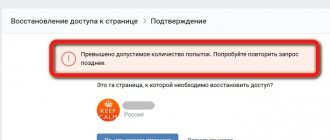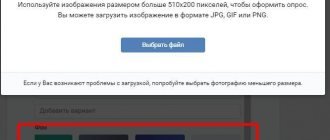The social network VKontakte provides its users with a huge archive of musical compositions, which they can listen to at any time. Anyone here can create their own playlist by clicking on the plus sign next to any song. When viewing the list of melodies, sometimes you come across unknown symbols, for example, the letter E. Most users have no idea what the letter E means next to the name of the music in VK, let's figure it out.
Illustration of letter E near song
What does the letter “e” mean in VKontakte audio recordings?
The latest updates to the official website and applications of the VKontakte social network have made adjustments to its work. Now on the service:
- audio and video files are censored;
- there are time restrictions on listening to tracks;
- the copyrights of owners of music and video compositions are reliably protected;
- it is possible to download and send voice messages (without censorship);
- The quality of downloaded content improves.
Many users ask if the letter "e" is a misspelling. But there is no room for mistakes here. The letter “e” in VK audio recordings means the word “Explicit” (explicit, frank). In turn, this will mean that the musical composition has an age limit of at least 12 years, since its lyrics contain informal and profanity. Some artists circumvent censorship by recording the same track using a lighter version of the lyrics. In this case, the logo is not superimposed.
Before sending a certain composition to a friend on Vk, you now need to check whether it is marked with a censorship logo. Imposing restrictions on listening to music on social networks will improve the quality of content and protect users from age-inappropriate audio materials. This option was introduced by the developers relatively recently, but is already actively performing its function.
Alevtina Zaitseva (Articles written: 109)
Author of analytical articles, reviews, guides and instructions. Thanks to her education and experience, Alevtina is a true expert in using social networks and smart devices. View all posts by this author →
Today we will talk about how to download music from VK to iPhone. This question is relevant for owners of different models of Apple phones. In the famous iTunes you can only listen to music online. But what should you do if you want to enjoy it offline?
The letter E in Apple music
A similar situation exists in Apple Music. Here the letter E indicates obscene language used in the song, and such a video may subsequently be deleted or blocked by the administration.
To bypass the blocking and listen to prohibited content:
- go to the settings of your Apple device;
- select the “Basic” section;
- then find the item “Restrictions”;
Restrictions section on an Apple device - if you have previously used restrictions on this device, then you already have a password, you just need to enter it, if not, create it;
- after you are logged in, find “Allowed content”, where podcasts, music are located. Clean will most likely be installed here, but you need to activate Explicit.
Podcasts, Music section on your Apple device
Now go back to Apple Music and you can try opening any song marked Explicit. It should open up. Done, any content with the letter E is available to you.
How to save music from VK to iPhone
There are various applications to download your favorite tracks to your iPhone. Let's look at some of them and find out all the pros and cons of this method.
Be careful when downloading these programs. They cannot be found in the App Store, which means Apple does not bear any responsibility for installing them on the gadget. The main thing is to download them only from official sites and then no problems will arise.
Glazba
We won't start with the application at all. Glazba is a media player that allows you to download music from VK to your iPhone. It is not in the official store, but it is quite popular among Apple phone owners.
Before proceeding with the instructions, let us make one clarification. The player has several installation options:
- Free - full version, which requires reinstallation once a week. But you don't have to pay.
- Several paid installation options with different functionality.
- Free version, but without VK support. She doesn't interest us.
So how can you download music from a contact to your iPhone for free using Glazba?
- First, install it. To do this, go to the official website https://glazbaapp.com/.
- Choose an installation option. We will consider the first, free option.
- You need to install the Cydia Impactor application on your computer, a link to which is kindly provided there.
- After this, you will download the player to your PC.
- Next, connect your iPhone using a USB cable.
- Transfer the player to your gadget.
- You can now launch Glazba.
- By connecting to it through your VK account, you will be able to download music from VK to iOS.
- Every time you listen to your favorite songs, a download icon will appear above their name.
- By clicking on it, you will move the selected song to Downloads. And from there you can listen to it at any time.
Music VK
This is already a full-fledged application that you can also install on your device. It also makes it possible to download music to your iPhone via VK.
The application has the following advantages:
- Listen to your favorite tracks offline.
- Creating playlists.
- No restrictions on download volumes.
- Access to tracks from friends and communities.
- Much more.
Now let's take a step-by-step look at how to work with this program:
- Go to the official website of the application https://music-vk.com/.
- Click Install.
- The installation will start. However, you will soon see a warning about a suspicious developer. It is Apple that monitors the officiality of installed programs.
- To get around this obstacle, go to the “Settings” of the device.
- Go further to the “Basic” section.
- From there, go to “Device Management” (the item will appear only after you install at least one such program).
- Find the name of the developer and click the “Trust” button.
- Now you can open the application.
- Enter your VK account details.
- Your audio recordings will download.
- Now you can download music from VK to iPhone. Just click the appropriate button.
SaveForm.net
SaveForm.net is a PC extension. However, with its help we can download music from VK to iPhone, and to any model - 4, 5s, 6, 10, and so on.
The peculiarity of this method is that we will download music to the computer. And from there we import them into the iPhone. But, as they say, in war all means are good. And the main thing for us is that our favorite music gets into our gadget.
Let's find out how to use this tool:
- Go to the official website of the extension https://ru.savefrom.net.
- Click the "Install" button.
- After installation you will need to enable the extension. A special window will appear for this.
Please note that the plugin can currently only be installed in Opera.
- The plugin icon will now appear to the right of the address bar in your browser.
- Log in to your VK account.
- Go to the album with audio recordings.
- A special download icon appeared next to each of them.
- Download all the tracks you want to your PC.
- Connect your iPhone via USB cable.
- Import music to your device.
As you can see, this is not a very common way to save music in VK on an iPhone. But you will protect your gadget from installing unlicensed software.
How to download songs from VK to iPhone officially?
Let’s answer this question right away: it’s not free. Of course, progress does not stand still. More and more applications are constantly being developed and uploaded to the App Store. While they are there, they are considered official. However, Apple security quickly detects them and removes them.
This was the case at one time with the applications Fonoteka, Meloman and others. Perhaps even now you can find some kind of pseudo-official application in the store. You will be able to install it and perhaps even download audio recordings. But rest assured, in a couple of days it will disappear from there. And no further support and development is possible for this application.
The official way to download music to an iPhone is a paid method. Paid applications give you unlimited access to your favorite songs for a very reasonable fee.
BOOM
One such application is BOOM from VK. It provides the following features:
- The first month of use is free. 30 days is enough time to evaluate the application. You can decide whether you like it and whether the conditions suit you. If not, you can always unsubscribe.
- BOOM hides audio advertising. This is an undeniable plus. Agree, these sudden loud announcements while listening to music are very annoying.
- You can also enjoy your favorite tracks in the background.
- And the most important thing is the ability to download ringtones from VK to iPhone.
Here's how to use it:
- Now open BOOM. Your VK will be automatically linked to your application account.
- When you first launch it, you will be asked to subscribe. Click the "Try for Free" button.
- Now, when playing music, a “Download” icon will appear opposite the tracks.
Don't forget to unsubscribe from the app after the first month of use if you don't like it. Because otherwise your card will be debited for the next month. It is only 149 rubles, but everything will not be pleasant early. This can be done in the settings of your BOOM account.
Boom application for downloading and listening to VK songs
The Boom application is a VKontakte partner that helps legalize music and takes an active part in the development of the entire service. The Boom application allows you to download tracks, after which you can listen to them without a connection. Subscription to VKontakte music also applies to this application.
This program has special sections with new products, as well as recommendations. There is another significant advantage - it is possible to cache content. And the feed reflects posts from the user’s friends, groups, and public pages where the composition is attached.
According to many users, the application is not finalized. Here, when searching, original compositions are not separated from remade ones added by other users. As on the page of social networks, here you can hear instead of the original Lady Gaga - a weak-minded “repik” of some teenager.
The developers have announced a large number of functions and capabilities of the application. Among them are a player with an equalizer, top new songs on the main page, smart search with many filters, saving songs to a device or hard drive, and creating your own collections. But users received the application rather coldly. It only scored 1.9 on the Google Play Store.
Boom app
Alternative
What other ways are there to download music to your iPhone?
These are other official applications such as:
- Google Play Music.
- SoundCloud.
- Pandora.
- Deezer.
But, unfortunately, they do not allow you to save music specifically from VK. The maximum you can do is create the same track list with all your favorite songs as in your account. And you can already save it for listening offline.
We told you about different ways to download music from VK to iPhone for free and officially. Some of them are simple, some not so much. But most importantly, we found out that you can bypass the prohibitions of the system if you set a goal.
Decide which option you like best and use it with pleasure. After all, all problems can be solved when your favorite melody plays in your headphones.
When listening to music using the built-in audio player on VKontakte, some observant users may have noticed next to some songs the letter “E” in a square located to the right of the track. And the curiosity that arises simply obliges us to find out why these particular songs are marked with this icon, and others are not.
In this article we will figure out what the letter E means in VK music next to audio recordings.
What does the letter “E” mean in audio recordings on VKontakte?
So, what does the icon with the letter “E” mean in VK music next to audio recordings?
E – this icon, according to international standards, marks musical compositions containing profanity, rude or obscene content. It can be considered an analogue of the 18+ mark, indicating that the content is not for minors.
The letter E is an abbreviation for the word “Explicit” (“explicit”, “frank”).
This sign can also be found on other sites and applications that provide the opportunity to listen to music: Apple Music, Yandex Music, etc.
Since the 1990s, the “E” sign in the United States has been used to mark music albums that contain songs with explicit content.
What is happening with VKontakte music now?
In some cases, restrictions on free use are imposed on the music of the VKontakte social network. For example, users will not be able to listen to tracks from a mobile application in a minimized state. Or when the phone is blocked. These restrictions are removed by a paid subscription, although its registration is not mandatory.
Social administration The network began to massively delete the compositions of some artists. This has been going on since 2012, when artists began making claims on VKontakte. The VK music service in iOS was gradually limited, until a certain point, until it closed completely in 2015. Since then, the social network has been able to establish relationships with such world leaders in the music industry as Universal Music, Sony Music and Warner Music, and now the VKontakte music service has resumed its work at Apple. The letter E is also present here in VK music.
Why is the E sign needed in VK near the song?
The purpose of flagging songs containing obscenities is to protect fragile young minds from being exposed to such content.
But, in practice, this only attracts the attention of schooltrons and can produce the opposite effect from the expected one.
I hope the article “What does the icon with the letter E mean in VK music next to an audio recording” was useful to you.
Didn't find the answer? Then use the search form:
7 Facts You Should Know About Digital Music Quality. One of the key aspects of a positive music listening experience is the quality of the recording and the quality of the sound that we enjoy. This is a very speculative topic, pitting technologies, devices and, first of all, the listeners themselves. The mass of ordinary people are opposed by audiophiles of all stripes with views of varying degrees of radicalism, but with an equally high level of rejection of the habits of their opponents. Joining this crowd of connoisseurs of $500 cables, tube amplifiers and high-end stereo systems are well-respected artists and producers who explain that music should sound great, that it did at the time of recording, but with the advent of the digital era (then There is the dominance of audio file compression and the universal portability of playback devices) the quality of music is inevitably deteriorating, and we generally have to do something about it. Stop the volume race or buy expensive CDs, get a player, amplifier and speakers in decent condition, for example. They think we're stupid for buying MP3s from online retailers like iTunes. Who listen to satellite and Internet radio. Who are exposed to fresh music every day on popular digital audio platforms. Who are content with sets of DJs playing from flash drives. But these “nuances” not only do not prevent us from listening to a huge amount of music using the above methods, but also enjoying it. There is no doubt that the quality of the music plays an important role. DJs, for example, are well aware of this, working with musical material much more closely and closely than the public. There is a difference between a specially compressed MP3 file and its source on a CD - that's a fact. However, the authoritarian tone of audiophiles and manufacturers of expensive musical equipment should soften, and the rhetoric should become more down-to-earth and closer to the average consumer of music products. We decided to collect 7 facts about sound quality that will slightly clear the clouds over digital formats and portable audio. 1. The file format does not play a decisive role. What the producer of a track does with it in the studio is a thousand times more important than what format the result of this work will be encoded into. You can’t make candy out of crap: a decent track with an artistic message, correctly produced, mixed and mastered in an acceptable dynamic range (where you haven’t gone overboard with compression, first of all), will sound better even on unimportant speakers than a boring, gray, poorly mastered track , even if you listen to it in lossless format on a fancy stereo system. Always. This should be obvious to everyone. 2. Compressing the file size by 80% does not reduce the audio quality proportionally. When you compress digital audio, you get rid of the bulk of the ballast without the slightest impact on the audible quality of the music to the human ear. This process is called lossless compression (much like RAR or ZIP files). If you want to reduce the size of an audio file even more radically, you will have to shred the source and its sound forever - this is already a case of the notorious “loss of quality.” Yes, the track undergoes irreparable changes as a result, but people too often add to the darkness by claiming that this happens indiscriminately. It's time to admit that most people can't hear some of the details on a recording. Our ears simply cannot compare with the hearing of dogs and other animals. You can get rid of a huge amount of side information in audio and no one will even notice the difference. This is psychoacoustics in action, and this is how lossy audio compression works. There is a certain threshold below which the difference begins to be heard (an MP3 with a bitrate of 96 kilobits per second cannot be compared with an analogue of 320), but this does not mean that the myth about the relationship between the percentage of compression and the final result is true. It is a myth. 3. People get the most pleasure from life at moments when music is playing of less than the best quality. Life story. In the 90s, the conventional hero of the article went to an illegal rave, partied all night long and decided that he would make DJing his life’s profession. A brave step and a fateful decision. But what happened to the sound at that party? Everything was bad, he remembers. The needle flew off, the untuned equalizer and amplifiers periodically turned off. Has anyone given a damn about this? Hardly. Have you ever been to a party that sounded bad but changed your life? Did you dance all night in front of shitty speakers in a strange club and leave in the morning with your future life partner? Did you turn on the shortwave radio in the car, and then an old hit played like a balm for your soul and saved you from a rash act? Or the traffic jam no longer seemed so dull. Played your favorite song until the tape broke on your pocket cassette player and decided to form a band? Have you been listening to a playlist on VKontakte all damned stuffy summer and remember this time for the rest of your life? Played a set with terrible sound, burning with shame, and then a line of people lined up to you claiming that it was the best party ever? Congratulations! You are one of the 99% of real people in real life situations who have experienced something involving music. Moreover, the music is of such quality that the remaining percentage of purists and snobs are ready to burn you to ashes. These guys believe that you need to worry about the audio format and dynamic range of someone else's equipment. It's better to live a real life. After all, it is quite short. 4. The pursuit of the ideal is harmful. Each of us wants the world and its components to be ideal - this is an axiom. Any DJ wants the acoustic systems in clubs to be connected and tuned, each track in the collection to shine from high-quality mastering, and so on. But only the results of the work done count; each of us is forced to make compromises every day. So, oddly enough, this also applies to the quality of music. We already noted at the beginning that this is an important point, but not so much as to deny the space of options and decision-making opportunities - perfectionism has absolutely no place here. For example, an original underground producer uploads a fresh track at 128 KBPS, and it will definitely tear up the crowd. A dilemma arises: to play it or not? Purists will answer in the negative. But you need to be honest with yourself and judge by the emotions you want to convey through music. If the combined weight of factors outweighs five minutes of less than stellar audio in your set, you can put the doubt to rest. Don't let dogma and the false pursuit of ideals harm your mission as an artist. You will be able to buy a better quality version later. For now, just do your thing. 5. Music is created with an eye to the playback environment. Good sound producers listen to tracks as if they were making them on every possible system: bundled earbuds, cheap plastic computer speakers, and so on - with the thought of how other people will ultimately listen to it. This brings us back to the first point - the work of the producer and mastering engineer decides much more than secondary aspects. Club tracks with a lot of sub-register bass don't sound good on the radio, and loud hooting radio mixes with a squeezed dynamic range don't sound good in the club. And the file format has nothing to do with it. Producers are forced to make compromises - it's an integral part of their workflow, and no expensive equipment or ghostly software can affect it, and neither can you. 6. The “Golden Age of Audio” is a fiction. People too often exude sentimentality or repeat mantras about how good things were in the past. Which, in general, does not stand up to criticism: stereo as such did not exist until the end of the sixties, and the golden era of pop music in its decline gave birth to such sick formats as eight-track cassettes. Amplifiers and monitors have changed dramatically for the better, keeping pace with technological progress. Yes, in the 70s and 80s you could get good sound from well-pressed records, but in proportion to them, there were a lot of terrible pressings and editions in circulation that sounded simply disgusting - ask DJs and older music lovers. 7. Technology comes first. Thanks to technological progress, we can listen to more music than ever before - whether this is good or bad, although we cannot say yet. Most adequate music fans happily listen to a variety of genres and styles in different formats on different devices and have fun. Because the main thing is the music, if it is good in itself, then you can ignore the background noise, and the interference of the shortwave radio, and the loud club stereo system, and the excessive volume. So, gentlemen, high-brow audiophiles and manufacturers of expensive equipment, we perfectly feel the difference. A burger eaten on the run on Wednesday does not prohibit you from visiting a gourmet restaurant on Saturday. Everything has its place and time Wireless audio systems, streaming, portable players... everything has contributed to making music accessible to many more people than before. But even such positive dynamics are met with fierce resistance from fanatics of deluxe sound at any price and sacrifice. You have a choice between two completely contradictory situations. The first finds you in an acoustically muted listening room with a thousand-dollar stereo playing while your friends stroke their beards and twirl their mustaches while praising the “intoxicating” sound of the hi-hats and the percussive sounds of the double bass player. And in the second, you're tearing up a packed little bar, playing your set on crappy equipment at top volume, with girls starting to climb up on tables because you just played a crazy remix at 128 kbps. After the Fact If you want to experience the best audio quality possible, listen to a bird singing outside your window, a guitar being played, or someone singing in the same room you are in. Compared to the harmony of nature and natural sound, any recording is already a compromise. And manipulations with psychoacoustic characteristics, affordable devices for playing music and periodically mediocre sound are also a compromise, but of a different order. By the way, remember such things as demos on cassettes, four-track studio ports, copies from copies and other delights of the end of the last century? Entire scenes were built on these unshakable realities. Just imagine if everyone only accepted and worked with crystal clear audio from masters. We would likely never have witnessed the indie revolution and the radical changes that followed.
I took it from here: From this site I download music from this maestro. I recommend it to all lovers of beautiful and not “dirty” music. Here's one, for example:











